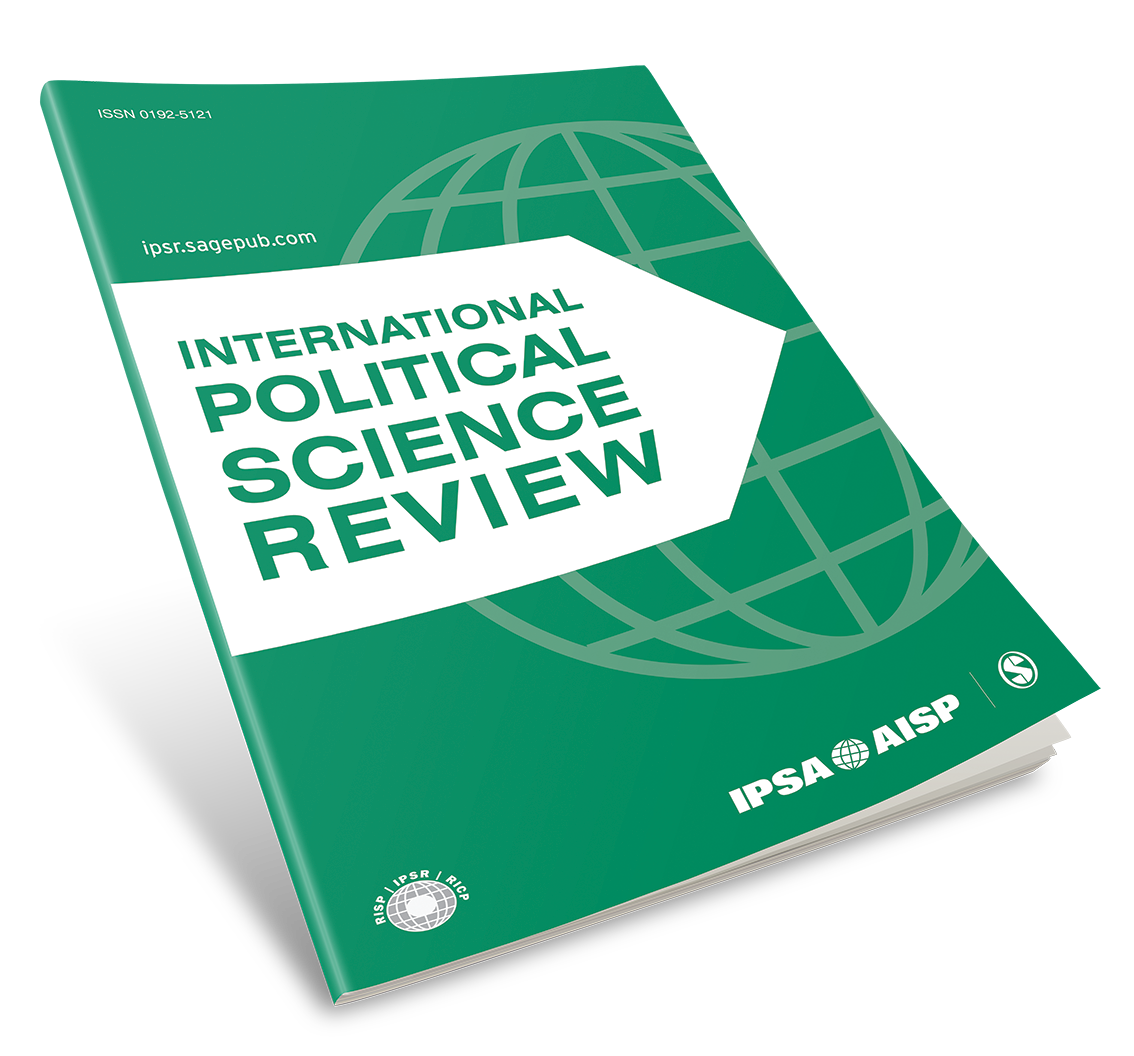

New Issue of IPSR Published (September 2025)
Publication date: Thu, 04 Sep 2025
The latest issue of the International Political Science Review (IPSR) (Volume 46, Number 4, September 2025) features articles on a range of current conceptual and empirical issues in comparative and international politics.
In their piece “What do lawmakers understand by ‘public transparency’? A longitudinal study of Brazil’s legislative production”, Andressa Butture Kniess and Francisco Paulo Jamil Marques examine the Brazilian case for lawmakers’ transparency policies, revealing a high level of activity, albeit with little to show for it in terms of transparency in the Brazilian House of Representatives.
In their article “Cohabitation and presidential powers: A global examination of dual executives 1850-2022”, Carsten Anckar and Thomas Sedelius take a closer look at the phenomenon of ‘cohabitation’ and its impact on presidential powers. They find that presidential power is reduced under cohabitation, with the most significant effect evidenced in semi-presidential systems where presidents are popularly elected. Meanwhile, on the issue of anti-dumping measures, Vartika Arora and K Narayanan draw on a case study of India’s anti-dumping policy to paint an interesting and detailed picture of the relationship between India and the WTO in their piece “Does opinion really matter: World Trade Organization’s member’s stance on India’s anti-dumping policy.”
In a study on voter preferences regarding foreign aid, Esoi Cho, in an article entitled “Ideology, financial circumstances, and attitudes toward public and private foreign aid,” finds that ideology and economic self-interest have a conditional effect on voters’ attitudes toward public and private foreign aid. Jacob Richard Thomas, Lemeng Liang, Shigeto Sonoda, and Yu Xie explore the impact of COVID-19 on soft power in OECD countries, with a special focus on perceptions of the U.S. and China. What they discovered are negative effects on both countries, particularly China, with some notable exceptions. In a fascinating study of civil wars and their duration in connection with regime type, Shale Horowitz finds that authoritarian regimes tend to experience shorter periods of ethno-territorial wars than do democracies, as concessions to rebels are easier to make in regimes with less transparency. Under authoritarian regimes, as it turns out, a higher tolerance for the cost of war was found to be a much weaker factor than expected. Shaimaa Magued sheds further light on decision-making processes within authoritarian regimes by examining decisions in a case study of Egypt’s Al-Sisi’s foreign policy. The study draws important general conclusions regarding foreign policy decisions taken by authoritarian regimes. On the issue of regime type, Raul Magni-Berton explores the meaning and properties of direct democracy through a theoretical lens. More specifically, “Direct democracy as a liberal political regime” provides a deeper analysis of consensus-building processes in direct democracies. Finally, in a novel analysis of crowdsourcing, Kyle Marquardt, Daniel Pemstein, Constanza Sahueza Petrarca, Brigitte Seim, Steven Lloyd Wilson, Michael Bernhard, Michael Coppedge, and Staffan Lindberg examine the substitutability of data experts by crowdworkers in data production. They find that while crowdworkers can substitute for experts when it comes to performing simple information-retrieval tasks, there appears to be little indication that crowdworkers can stand in for experts in the more complex process of gathering and synthesizing information.











